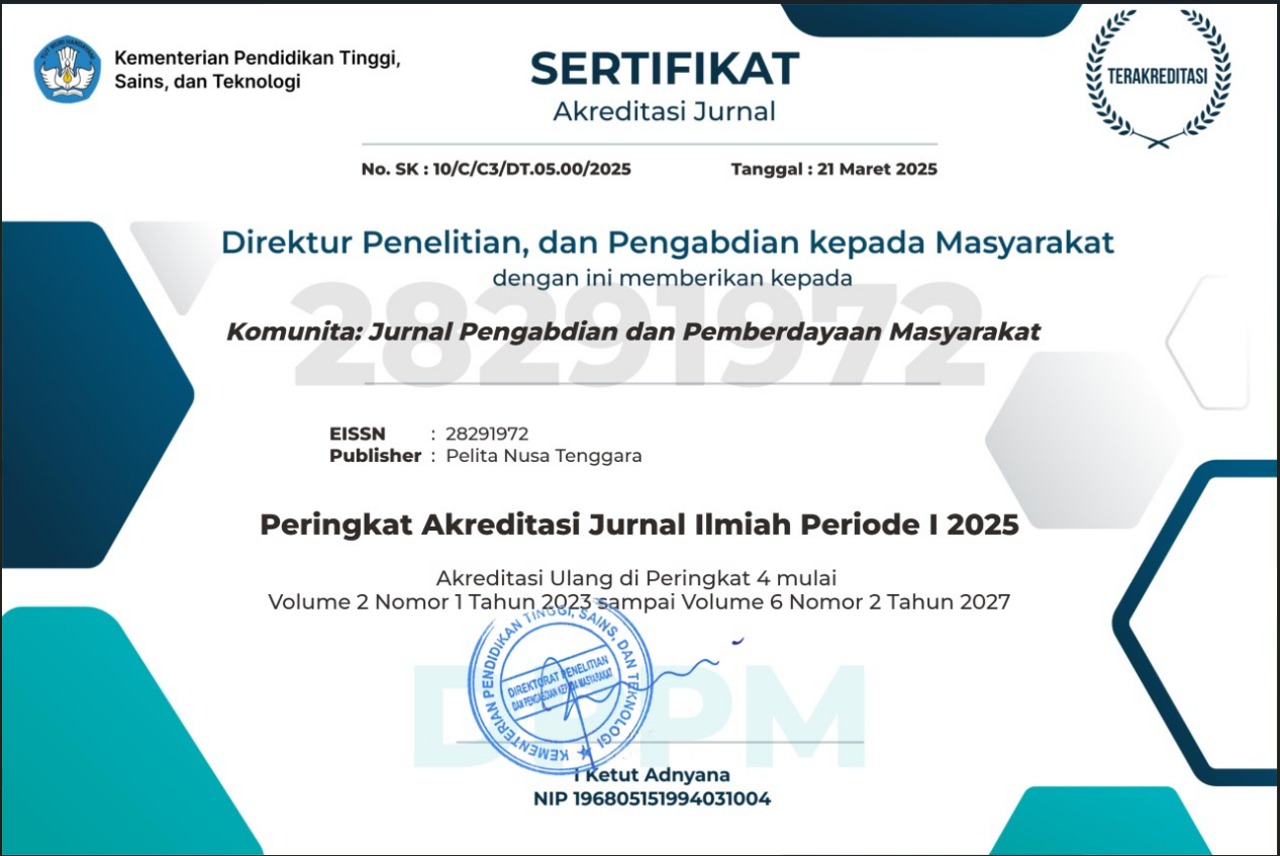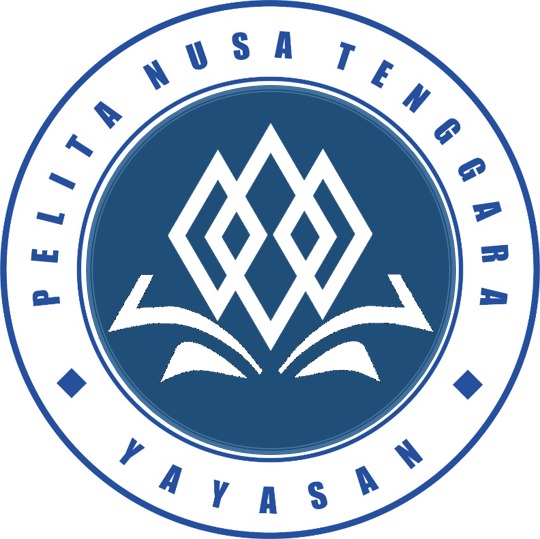Penguatan Literasi Dasar Melalui Model Pembelajaran Kontekstual dan Problem Based Learning di Daerah Minim Akses Digital
Abstract
Literacy is a fundamental prerequisite for developing students’ academic competencies. However, the 2022 PISA survey revealed that Indonesian students’ reading literacy remains low, especially in remote areas such as SDN 4 Sembiran, which faces limited internet access and challenging socio-economic conditions. This community service aims to improve basic literacy skills through an integrated learning approach combining contextual teaching and problem-based learning, based on students’ ability grouping. The method involved eight literacy training sessions supported by participatory observation and formative evaluation. Results showed significant progress in students’ ability to recognize letters, write, read syllables, words, simple sentences, and comprehend texts. More advanced students were able to read short passages, answer text-based questions, and compose simple paragraphs. The main challenges were pronunciation of consonant clusters and mastery of silent letters, which were gradually overcome with consistent guidance and adaptive methods. This program highlights the importance of ability-based grouping, integration of contextually relevant teaching methods, and active literacy facilitation. Approaches linking learning materials to real-life contexts and problem-solving effectively enhanced students’ motivation and literacy skills in remote areas. Structured and sustainable learning strategies are key to successfully improving basic literacy across varying student abilities.
References
Daryanto. (2013). Pembelajaran Kontekstual: Konsep dan Aplikasi. Yogyakarta: Gava Media.
Dinas Pendidikan Provinsi Bali. (2023). Laporan Survei Kemampuan Membaca Siswa SD di Wilayah Terpencil Provinsi Bali. Denpasar: Dinas Pendidikan Provinsi Bali.
Hmelo-Silver, C. E. (2004). Problem-Based Learning: What and How Do Students Learn?. Educational Psychology Review, 16(3), 235–266. https://doi.org/10.1023/B:EDPR.0000034022.16470.f3
Johnson, E. B. (2007). Contextual Teaching and Learning: What It Is and Why It's Here to Stay. Thousand Oaks, CA: Corwin Press.
Kementerian Pendidikan dan Kebudayaan Republik Indonesia. (2020). Panduan Gerakan Literasi Sekolah di SMA Tahun 2020. Jakarta: Kemendikbud.
Nasution, S. (2016). Pendekatan Kontekstual (Contextual Teaching and Learning/CTL). Bandung: Remaja Rosdakarya.
OECD. (2022). PISA 2022 Results: What Students Know and Can Do. Paris: OECD Publishing.
Patton, M. Q. (2002). Qualitative Research & Evaluation Methods (3rd ed.). Thousand Oaks, CA: Sage Publications.
Purnama, A. R. N., Urida, A., Sumarti, E., & Susandi. (2024). Pengabdian masyarakat dengan meningkatkan literasi dan numerasi siswa kelas 2 dan 4 SDN 02 Baturetno Singosari. Jurnal Pengabdian Masyarakat Indonesia, 1(5), 56–60.
Safi’i, I., Sobri, M., Rukmana, M., & Tarmini, W. (2023). Menumbuhkan literasi menuju masyarakat cerdas: Pengabdian untuk peningkatan kesadaran dan kompetensi literasi. Gervasi: Jurnal Pengabdian kepada Masyarakat, 7(2), 611–620.
Suprijono, A. (2016). Cooperative Learning: Teori dan Aplikasi PAIKEM. Yogyakarta: Pustaka Pelajar.
UNESCO. (2016). Global Education Monitoring Report 2016: Education for people and planet: Creating sustainable futures for all. United Nations Educational, Scientific and Cultural Organization. https://unesdoc.unesco.org/ark:/48223/pf0000245752
Yohamintin, Y., Gumala, Y., Pratiwi, V., & Awiria, A. (2021). Pembinaan literasi membaca melalui self-motivation sebagai upaya mengembangkan life skill dan meningkatkan hasil belajar pada anak usia sekolah dasar. Jurnal Abdimas, 4(2), 133–139.








